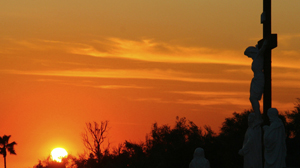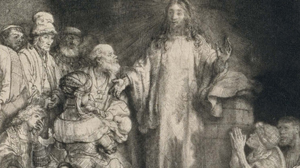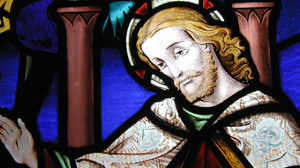Exodus 17:8-13
2 Timothy 3:14-4:2
Luke 18:1-8
Reflection:
This short periscope in Luke’s Gospel tells the story of the Unjust Judge and the Persistent Widow. Ordinarily, in Israel, when one had a grievance against another and is not receiving a hearing, the victim can go to court. Typically there are three judges:
#1. A judge for the perpetrator;
#2. A judge for the victim, and
#3. An impartial judge.
Obviously in this passage from Luke, the widow is not receiving a just hearing. According to the law, a widow cannot inherit her deceased husband’s estate. It automatically goes to a son or brother-in-law or another male relative. This leaves the widow at the mercy and compassion of the inheritor.
The Unscrupulous Judge is of questionable character. He neither “feared God” nor respected any person. It would not be unusual for the judge to be holding out for a bribe, or he sides with the perpetrator who is more powerful: financially, socially, or politically. All the widow can do is to be persistent in prayer and have faith in the compassion of God.
Prayer is a familiar theme that Luke promotes. In this Gospel Luke has Jesus withdraw at least six times for periods of prayer, and six times he mentioned Jesus taught his disciples to prayer. In this narrative the widow continues to badgers the Unjust Judge until she receives justice. Luke tell us that if a heartless judge grants a widows prayer. How much more would a God’s heart of love not refuse her.
The prayer of Jesus in Gethsemane is the most live-giving prayer of Jesus. “Not as my will but your will be done.” Luke is reminding in this passage we have a responsibility first for the widows, orphans, and strangers in our midst. Second, we must be consistent, persistent and earnest in our prayers and never lose heart because we believe that God is a provident God of compassion and love.
The saints have told us our prayer must be 1.) Be little in humility, #2.) Be great in our hope. and 3.) Be grafted to Christ Crucified. Prayer allows us to call down God’s mercy on those we lift up to him. Every heart becomes an altar and every soul is a sacrifice.
Prayer depends on:
#1. The Love of God – Who desires only what is best for us.
#2. The Wisdom of God – who alone knows what is best for us.
#3. The Power of God – which alone can bring to pass what is best for us.
Fr. Ken O’Malley, C.P., is the formation director and local superior at Holy Name Passionist Community in Houston, Texas.








